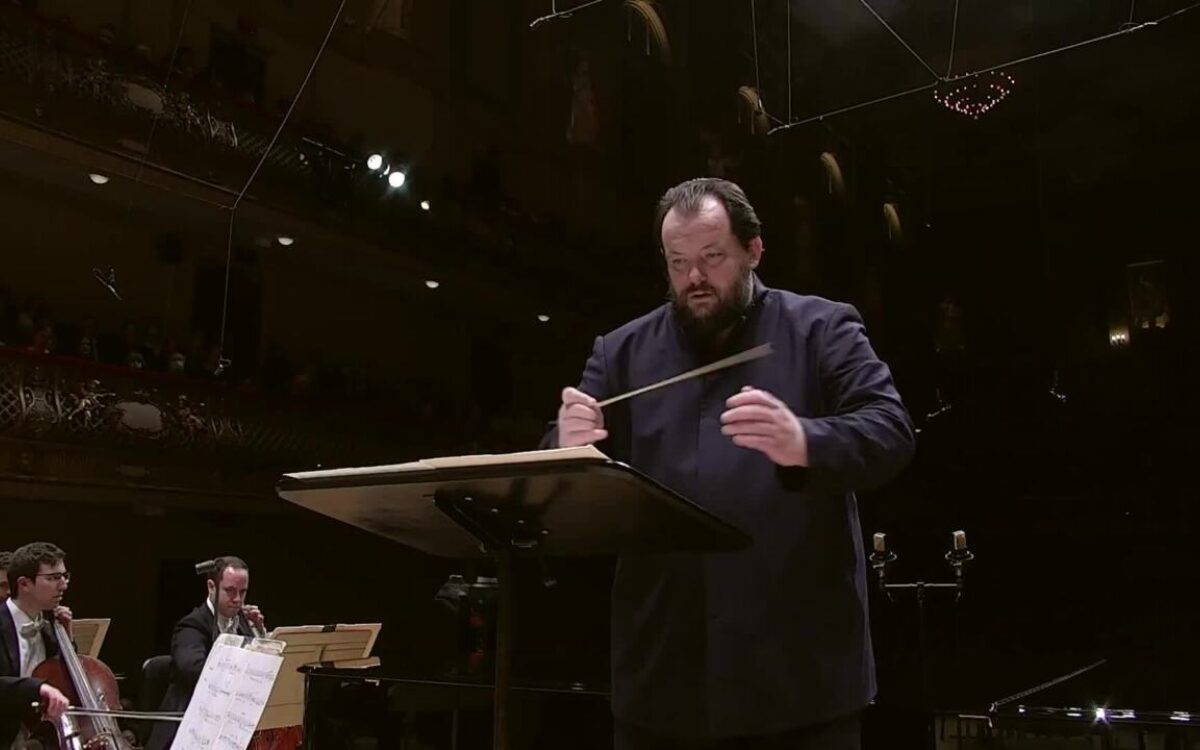Punctum
Caroline Shaw was born August 1, 1982, in Greenville, North Carolina, and lives in New York City. She wrote Punctum originally for the Franklin String Quartet, her own ensemble, in 2009; it was premiered at Greenwich House, New York City, in April 2010. She revised the piece for the Brentano String Quartet in 2013. The present version for string orchestra was commissioned by the Boston Symphony Orchestra, Andris Nelsons, Music Director, supported in part by the New Works Fund established by the Massachusetts Cultural Council, a state agency. This version was completed in 2022 and was premiered July 29, 2022, by the BSO under Andris Nelsons’ direction in Tanglewood’s Koussevitzky Music Shed.
Punctum is scored for string orchestra—first and second violins, violas, cellos, and double basses—and is about 9 minutes long.
Caroline Shaw is a violinist; she took up the instrument at age 2 (her mother was a Suzuki method instructor) and eventually earned a master’s degree in violin performance from Yale University. She actively performs on both Baroque and modern violin. It was as a member of the Franklin String Quartet in New York City that she wrote her first piece for the string quartet medium, Punctum; she has since written several more quartets, one of which, Entr’acte, she also expanded for string orchestra. Her violin concerto Lo is in her repertoire as a performer.
Caroline Shaw is also a singer. She is a member of the virtuoso, Grammy-winning vocal band Roomful of Teeth, which came into being at Mass MoCA in North Adams, Massachusetts. It was for that group that Shaw wrote what is probably her best-known piece, the highly entertaining, difficult, scintillating Partita, which combines a love for language with a deep sense of what it means to perform. Shaw won the Pulitzer Prize for that work, becoming the youngest-ever recipient of the award. It was only at that point that she realized she was, fully, a composer, in spite of working at that aspect of her musicianship for many years.
Shaw is a composer, and much else: her all-encompassing engagement in life as a musician also includes teaching and a vast range of collaborative projects, including some very high-profile ones with such superstar pop artists as Nas and Rosalía. She has written for film and for the stage. Although many of her works have begun as deep and thoughtful glosses on touchpoints in the Western Classical canon, her projects obliterate stylistic boundaries. A recent uncategorizable collaboration with the dynamic Sō Percussion, Let the Soil Play Its Simple Part, is a case in point. Her Pulitzer-winning Partita is also a case in point—complex, difficult, replete with extended vocal techniques, yet delightful and immediately inviting. Immersing herself in the world of her performers, she emerges with new and inventive ways of making the point of a piece as directly as possible.
Along with her do-it-yourself and “indie classical” credentials, Shaw has worked with such established ensembles and performers as Jonathan Biss and the Seattle Symphony for the piano concerto Watermark; the Los Angeles Philharmonic for The Observatory, the Cincinnati Symphony Orchestra, vocalists Renée Fleming, Dawn Upshaw, Anne Sofie von Otter, and Davóne Tines, cellist Yo-Yo Ma, and the Aizuri, Brentano, Dover, and Miró string quartets. The Attacca Quartet released a full album of her music for string quartet, which are especially well-traveled works. Her quartet Blueprint was performed on Tanglewood’s Festival of Contemporary Music in 2017 and by members of the BSO in 2020.
About Punctum, the composer writes, “Punctum is essentially an exercise in nostalgia, inspired by Roland Barthes’ description of the ‘unexpected’ in photographs and in particular by his extended description of the elusive ‘Winter Garden’ photo in his 1980 book Camera Lucida. Through modular sequences strung together out of context, the piece explores a way of saturating the palette with classicism while denying it form, and of disturbing the legibility of a harmonic progression in order to reinforce it later. One could also say the piece is about the sensation & memory of a particular secondary dominant in Bach’s St. Matthew Passion.”
Punctum was Shaw’s first acknowledged string quartet. Her comments on the piece—which apply equally well to the orchestral version—reveal some of the breadth of her cultural awareness, referencing the French post-structuralist essayist and critic Roland Barthes alongside the work’s musical inspiration, Bach’s St. Matthew Passion. Those familiar with that piece, or with Lutheran hymns, will begin to recognize the quartet’s original impetus about halfway through the nine-minute movement.
Robert Kirzinger
Composer and writer Robert Kirzinger is the Boston Symphony’s Director of Program Publications.

